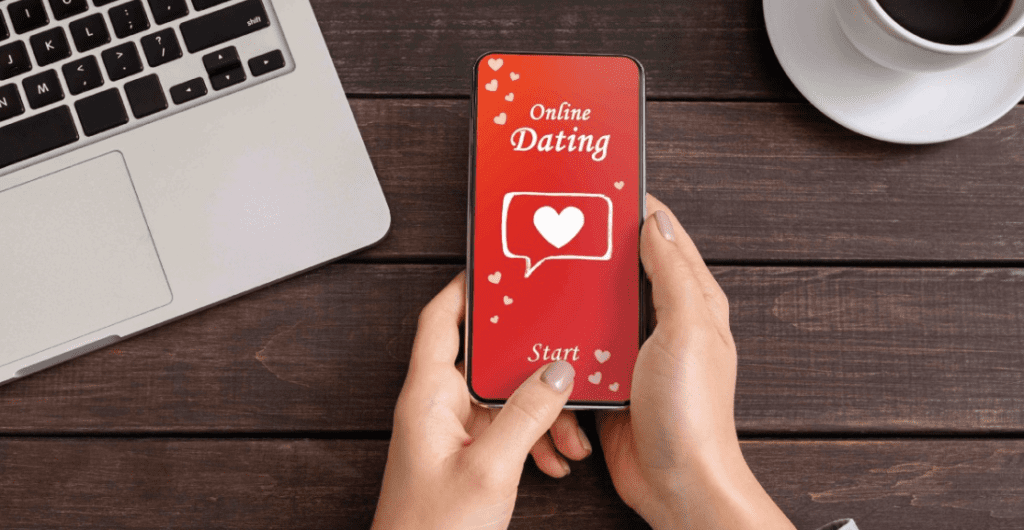Last Updated on December 15, 2022 by Rachel Hall
Introduction
Online dating. Loved by some, loathed by others. Apps like Tinder, Grindr, Bumble and Zoosk changed the way people meet and relate and moved romance in a very different direction. We might not want to tell our grandchildren that we met online, but if we want to have grandchildren it may be necessary. One of the things we can do to make the whole experience less tedious is to find hacks and get past the “fatal flaws”. Research recently published in Forbes gave some insight into where people go wrong.
Anonymity
The first flaw is anonymity. Some people may find modern communication overwhelming, given that we’re expected to pretty much always be available to whoever would like to speak with us. Most people would only date one or two people at a time, but online dating sites give us the opportunity to speak with several people at once. This can become overwhelming, and sometimes it’s easier to just ghost. This might not be the morally responsible thing to do, but it does happen. Dating apps also usually don’t include their users’ full names, so it is easier to slip away and know that someone won’t find you again.

Choice overload
The second flaw is choice overload. Imagine checking your dating app, sending a few messages and waiting for a response. Whilst this is happening, you can scroll through a few more profiles, just because you’re curious. The next thing you know you have far too many matches and can’t really commit to anyone because you’re spread too thin. Mobile dating apps are gamified and addictive, so you can easily spend a lot of time on them: it’s literally their business model. However, there comes a point where you’re just looking for the sake of it and not bothering to take any relationship beyond the talking stage. I don’t really have a solution because the problem is so deeply baked into the app, but if you find yourself swiping while bored, be conscious of what you’re doing and ask if you really want or need more matches. Deciding to go on a first date and putting effort into making a connection with one person will be more likely to get you somewhere.
Conflict of interest
The third flaw is the conflict of interest. Much like swiping while bored, there is something contradictory about dating apps, and it’s there by design. Tinder doesn’t want you to find true, lasting love – and nor does Zoosk, Plenty of Fish, eHarmony, or any other site. If you do settle into a monogamous relationship, they’ve lost a customer. Different sites handle this in different ways. Some will send you nudges to remind you that you’ve got new matches and super likes, others want you to know that lots of people viewed your profile, and some sites advertise themselves for casual dating or polyamory so you can go on dates, hookup and check the dating app on the bus home.
Dating apps are, ultimately, businesses looking out for the bottom line, and they don’t have your best interest at heart. They’re trying to make money. Don’t be ashamed if you struggle to form long-term relationships on dating sites, because if that worked, they’d put themselves out of a job, lose their user base and it’s a clear conflict of interest. Again, there isn’t an obvious solution for this flaw. The best way to meet people is to get on dating apps, but many of us are finding that we just don’t seem to get anywhere with them. I would say that meeting a significant other on a dating app is almost incidental and feels as likely as finding a romantic partner through matchmaking friends, on social media or at work. Dating apps want to keep you single.
Conclusion
Internet dating is not perfect. We’ve all known this, deep down, all along. You might come across your prince charming or find love at first swipe, but more likely you’ll spend some time trying to think of something witty to say on your profile, have a few repetitive conversations and end up using the site for fodder for your group chat. That’s fine, as long as you acknowledge what you’re getting into. Perhaps my advice should be to manage your expectations and not expect a random app on your phone to transform your life.
Rachel Hall, M.A., completed her education in English at the University of Pennsylvania and received her master’s degree in family therapy from Northern Washington University. She has been actively involved in the treatment of anxiety disorders, depression, OCD, and coping with life changes and traumatic events for both families and individual clients for over a decade. Her areas of expertise include narrative therapy, cognitive behavioral therapy, and therapy for traumatic cases. In addition, Rachel conducts workshops focusing on the psychology of positive thinking and coping skills for both parents and teens. She has also authored numerous articles on the topics of mental health, stress, family dynamics and parenting.

